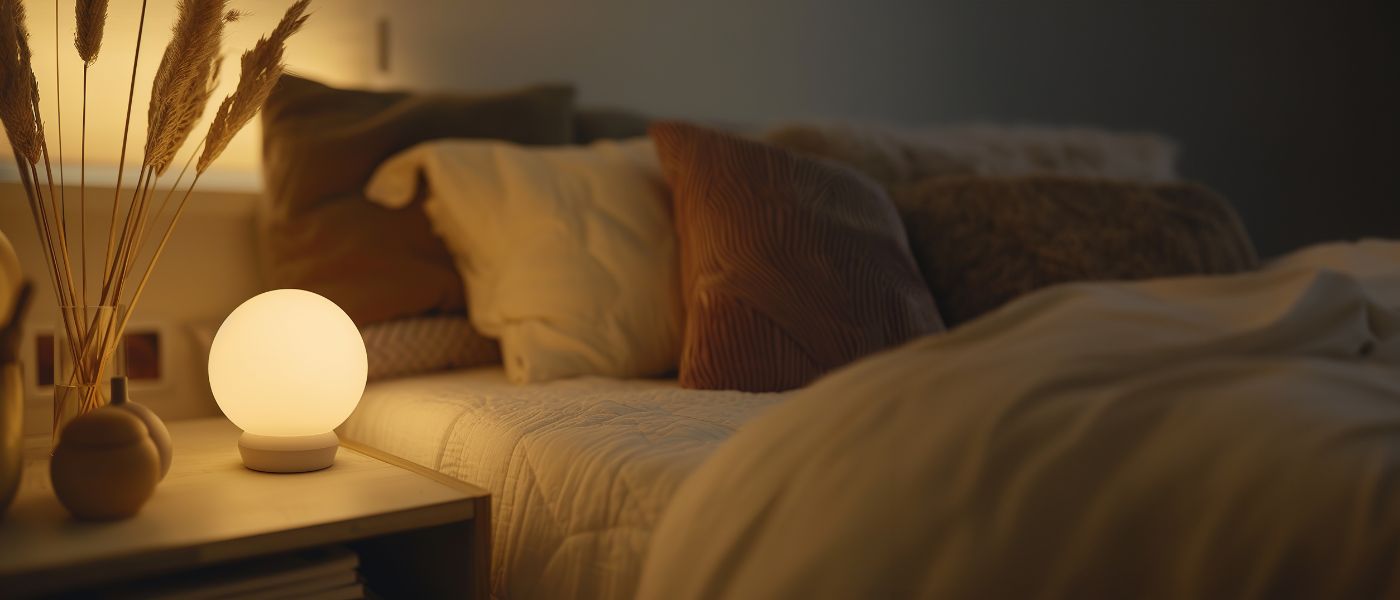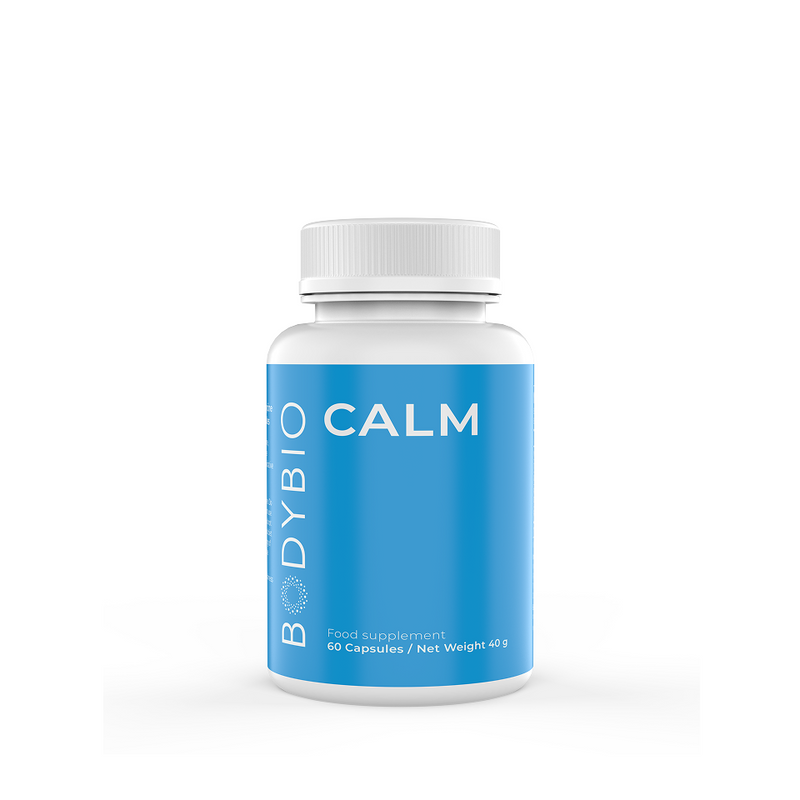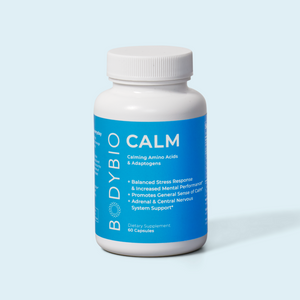What is Core Sleep vs. Deep Sleep? And How Much Do You Really Need?
Key Takeaways:
Key Points:
- Core sleep provides basic restoration, while deep sleep is essential for physical recovery and growth.
- Core sleep supports daily energy, but deep sleep is vital for long-term physical and mental health.
- Good sleep habits, like a consistent schedule and restful environment, help improve both core and deep sleep quality.
Sleep is one of the most critical components of overall health and well-being. Yet, many people struggle to get enough of the right kind of sleep, which can leave them feeling groggy and unfocused, and may even lead to long-term health issues.
Two key aspects of sleep that often get attention are core sleep and deep sleep. But what do these terms mean, and how much of each do you really need? In this article, we'll break down these sleep phases, their purposes, and how to get the right balance for optimal health.
Table of Contents:
- Sleep Stages
- What is Core Sleep?
- What is Deep Sleep?
- How Much Core and Deep Sleep Do You Really Need?
- How to Improve Sleep Quality
- Prioritizing Sleep for Better Health
Understanding Sleep Stages
To better understand core sleep and deep sleep, it’s essential to have a basic understanding of the sleep cycle. When we sleep, our body goes through a series of stages that include both Non-Rapid Eye Movement (NREM) and Rapid Eye Movement (REM) sleep. These stages work together to provide the restorative benefits our body and mind need to function optimally.
What is Non-Rapid Eye Movement (NREM) Sleep?
NREM sleep encompasses the first three stages of the sleep cycle, each one playing a distinct role in the process of physical and mental recovery. NREM sleep is characterized by slower brain waves, lower heart rates, and relaxed muscles, setting the stage for deep rest. This phase of sleep is particularly important for the body, as it focuses on physical restoration and is known to be dream-free in comparison to the REM stage.
NREM sleep is crucial because it helps the body repair itself, store energy, and prepare for the more active REM phase. NREM also makes up the majority of the sleep cycle, with most adults spending about 75% of their sleep in these stages.
The Four Stages of Sleep
The sleep cycle comprises four stages, with the first three falling under NREM:
- Stage 1 (NREM): This is a light sleep phase where you can be easily awakened. During this stage, your body transitions from wakefulness to sleep, and your muscles begin to relax. This stage only lasts a few minutes, serving as the gateway into deeper sleep.
- Stage 2 (NREM): This stage involves deeper sleep, where the heart rate slows and body temperature drops. During this stage, your body reduces its activity in preparation for the deeper, more restorative stages. Brain activity also slows down, with occasional bursts known as sleep spindles, which play a role in memory processing.
- Stage 3 (NREM): Often referred to as deep sleep or slow-wave sleep, this stage is crucial for physical restoration. During deep sleep, brain waves slow significantly, and the body releases growth hormones to repair tissues and support muscle growth. This phase is vital for overall recovery, immune function, and physical health.
- Stage 4 (REM Sleep): The only stage outside of NREM, REM sleep, is when dreaming occurs. During this stage, brain activity increases, almost reaching levels similar to wakefulness. REM sleep plays a key role in cognitive function, emotional health, and memory consolidation. Muscles are temporarily paralyzed, preventing you from acting out your dreams.
These stages cycle throughout the night, with each cycle lasting about 90 minutes. NREM stages are more prevalent in the first half of the night, while REM sleep becomes more dominant in the latter half. Each stage serves a specific purpose, allowing for a balanced sleep experience that supports both physical and mental well-being.
What is Core Sleep?
Core sleep generally refers to the minimum amount of sleep necessary to sustain daily functioning. It usually includes all NREM stages and some REM sleep and typically makes up the first five hours of a full night's rest.
During core sleep, your body begins to restore its basic functions, laying a foundation for sustained physical and mental energy throughout the day. However, while core sleep is necessary, it's not sufficient on its own. To achieve full rest and reap the health benefits, deep sleep is essential.
Benefits of Core Sleep
Core sleep helps with:
- Basic restoration and energy replenishment
- Supporting cognitive function
- Memory consolidation during REM phases
Core sleep sets the foundation for deep sleep.
What is Deep Sleep?
Deep sleep, or slow-wave sleep, is a critical stage of NREM sleep, which occurs in Stage 3. This is when your brain waves slow down and the body enters a state of profound relaxation. You might find it challenging to wake up someone in this phase, as it is the deepest and most restorative part of the sleep cycle.
During deep sleep, the body:
- Releases growth hormones that aid in tissue and muscle repair
- Strengthens the immune system
- Enhances cellular regeneration
These restorative processes highlight why deep sleep is considered the most vital phase for physical recovery.
The Role of Deep Sleep in Health
Deep sleep is a critical phase in the sleep cycle, providing the body with the restorative benefits it needs to function optimally. From physical repair to emotional resilience, this stage of sleep supports numerous health aspects that help you feel and perform at your best.
- Growth and Repair: During deep sleep, your body works on repairing tissues and muscles, supporting recovery from daily wear and tear.
- Immune Function: Deep sleep bolsters the immune system, enhancing your body’s ability to fend off infections.
- Mental Health: Lack of deep sleep can impact mood, increase stress, and even heighten the risk of developing mental health disorders.
Deep sleep is not just about rest — it’s about rejuvenation on all levels of your health. Prioritizing this stage of sleep can lead to improved physical resilience, a stronger immune system, and a more balanced mental state, underscoring its vital role in holistic health.
Core Sleep vs. Deep Sleep: Key Differences
While core sleep covers the basics, deep sleep is where the heavy lifting for health happens.
Here’s a side-by-side comparison:
|
Core Sleep |
Deep Sleep |
|
Foundation for daily energy |
Focuses on growth and repair |
|
Includes lighter sleep stages and some REM |
Occurs in Stage 3 NREM |
|
Provides necessary rest for short-term survival |
Essential for long-term health and recovery |
Understanding this distinction helps underscore why a good night’s sleep is more than just the hours you log — it’s about quality as well as quantity. This idea helps explain why some people do just fine on 7 hours a night, while others need closer to 9 hours.
How Much Core and Deep Sleep Do You Really Need?
The amount of core and deep sleep you need depends on factors like age, lifestyle, and overall health.
Here’s a general guideline:
| Age Range | Sleep Needs | Deep Sleep Need | Notes |
|---|---|---|---|
| Infants (0–12 mo) | 12–16 hours/day | REM and non-REM split evenly | Frequent sleep cycles; REM is essential for brain and sensory development |
| Toddlers (1–2 yrs) | 11–14 hours/night | High proportion of deep sleep | Deep sleep supports early growth and memory consolidation |
| Preschoolers (3–5 yrs) | 10–13 hours/night | Still relatively high | Deep sleep supports learning and behavioral regulation |
| Children (6–12 yrs) | 9–12 hours/night | Still needed for growth | Deep sleep remains crucial for development, but begins to decrease slightly |
| Teenagers (13–18 yrs) | 8–10 hours/night | Critical for development | Deep sleep essential for physical growth and brain maturation |
| Adults (18–64 yrs) | 7–9 hours/night | ~1.5–2 hours | Deep sleep supports memory, immunity, and metabolic processes |
| Older Adults (65+ yrs) | 7–8 hours/night | Less than younger adults | Deep sleep declines with age; maintaining sleep hygiene becomes more important |
For children, deep sleep stages are essential for growth and physical development, as this is when the body releases growth hormones to aid in muscle repair, bone strength, and immune function. Deep sleep also supports memory consolidation, which helps children process new information, develop language skills, and regulate emotions.
While core sleep might cover basic rest, you’ll want to aim for a full sleep cycle of around 7-9 hours to ensure you’re getting adequate deep sleep. Skimping on deep sleep can lead to an accumulation of sleep debt, which impacts your overall well-being.
How to Improve Core and Deep Sleep Quality
If you’re struggling to achieve both core and deep sleep, consider the following tips:
1. Maintain a Consistent Sleep Schedule
Go to bed and wake up at the same time every day, even on weekends. Consistency helps regulate your body’s internal clock, making it easier to achieve the different sleep stages effectively.
2. Create a Restful Environment
A dark, quiet, and cool room can significantly improve your sleep quality. Consider using blackout curtains, white noise machines, and setting your thermostat to around 65°F (18°C).
3. Limit Caffeine and Alcohol Intake
Caffeine and alcohol disrupt sleep, so it’s best to avoid them in the hours leading up to bedtime. Both can interfere with the deep sleep stages, reducing the overall quality of your rest. Remember, it’s not just coffee — there’s caffeine in chocolate and black and green tea as well.
4. Develop a Bedtime Routine
Wind down with calming activities, such as reading or taking a warm bath. Avoid screens at least an hour before bed, as the blue light emitted by devices can interfere with melatonin production, making it harder to fall asleep.
5. Consider Calming Supplements to Promote More Restful Sleep
Consider calming supplements such as rhodiola, taurine, glycine, and phosphatidylserine — key components of BodyBio Calm.
- Taurine: This essential amino acid supports both brain and body function by increasing GABA levels, which soothes excitatory neurotransmitters and promotes relaxation and well-being.*
- Glycine: An important neurotransmitter that aids relaxation and effective stress management, glycine is a vital inhibitory neurotransmitter in the central nervous system, playing a significant role in calming the mind.*
- Rhodiola: A well-researched adaptogen, rhodiola is known for its ability to alleviate stress, reduce mild to moderate depression, and enhance mood. It offers natural brain protection and has anxiety-reducing effects, helping to regulate brain chemicals without causing drowsiness or fatigue.*
- Phosphatidylserine: This phospholipid helps maintain balanced cortisol levels. Studies suggest it may improve mood, strengthen immunity, and enhance resilience to stress.*
Together, these ingredients enhance calmness and reduce racing thoughts at bedtime, making it easier to fall asleep and cycle through core and deep sleep for a more restful night.
Prioritizing Both Core and Deep Sleep for Better Health
Core sleep and deep sleep each play essential roles in your overall health. While core sleep covers your basic rest needs, deep sleep provides a more profound level of restoration that’s crucial for long-term health.
By prioritizing good sleep habits and aiming for a full night’s rest, you can ensure that your body and mind are getting the restoration they need to keep you feeling your best the next day.
Barbato G. (2021). REM Sleep: An Unknown Indicator of Sleep Quality. International journal of environmental research and public health, 18(24), 12976. https://doi.org/10.3390/ijerph182412976
Baumeister J, Barthel T, Geiss KR, Weiss M. Influence of phosphatidylserine on cognitive performance and cortical activity after induced stress. Nutritional Neuroscience. 2008;11(3):103-110. https://doi.org/10.1179/147683008X301478
Bayon, V., Leger, D., Gomez-Merino, D., Vecchierini, M. F., & Chennaoui, M. (2014). Sleep debt and obesity. Annals of medicine, 46(5), 264–272. https://doi.org/10.3109/07853890.2014.931103
Blumberg, M. S., Lesku, J. A., Libourel, P. A., Schmidt, M. H., & Rattenborg, N. C. (2020). What Is REM Sleep?. Current biology : CB, 30(1), R38–R49. https://doi.org/10.1016/j.cub.2019.11.045
Frank, M. G., & Heller, H. C. (2019). The Function(s) of Sleep. Handbook of experimental pharmacology, 253, 3–34. https://doi.org/10.1007/164_2018_140
Gundersen RY, Vaagenes P, Breivik T, Fonnum F, Opstad PK. Glycine – an important neurotransmitter and cytoprotective agent. Acta Anaesthesiol Scand. 2005;49(8):1108-1116. https://doi.org/10.1111/j.1399-6576.2005.00786.x
Konstantinos F, Heun R. The effects of Rhodiola Rosea supplementation on depression, anxiety and mood – A Systematic Review. Global Psychiatry. 2020;3(1):72-82. https://doi.org/10.2478/gp-2019-0022
Mason, G. M., Lokhandwala, S., Riggins, T., & Spencer, R. M. C. (2021). Sleep and human cognitive development. Sleep medicine reviews, 57, 101472. https://doi.org/10.1016/j.smrv.2021.101472
Nelson, K. L., Davis, J. E., & Corbett, C. F. (2022). Sleep quality: An evolutionary concept analysis. Nursing forum, 57(1), 144–151. https://doi.org/10.1111/nuf.12659
Ochoa-de la Paz L, Zenteno E, Gulias-Cañizo R, Quiroz-Mercado H. Taurine and GABA neurotransmitter receptors, a relationship with therapeutic potential? Expert Review of Neurotherapeutics. 2019;19(4):289-291. https://doi.org/10.1080/14737175.2019.1593827
Scott, A. J., Webb, T. L., Martyn-St James, M., Rowse, G., & Weich, S. (2021). Improving sleep quality leads to better mental health: A meta-analysis of randomised controlled trials. Sleep medicine reviews, 60, 101556. https://doi.org/10.1016/j.smrv.2021.101556
Siegel J. M. (2023). REM sleep function: Mythology vs. reality. Revue neurologique, 179(7), 643–648. https://doi.org/10.1016/j.neurol.2023.08.002
Spiegel, K., Leproult, R., & Van Cauter, E. (1999). Impact of sleep debt on metabolic and endocrine function. Lancet (London, England), 354(9188), 1435–1439. https://doi.org/10.1016/S0140-6736(99)01376-8
Szymusiak R. (2018). Body temperature and sleep. Handbook of clinical neurology, 156, 341–351. https://doi.org/10.1016/B978-0-444-63912-7.00020-5
Troynikov, O., Watson, C. G., & Nawaz, N. (2018). Sleep environments and sleep physiology: A review. Journal of thermal biology, 78, 192–203. https://doi.org/10.1016/j.jtherbio.2018.09.012
Why is sleep important? | NHLBI, NIH. (2022, March 24). NHLBI, NIH. https://www.nhlbi.nih.gov/health/sleep/why-sleep-important










